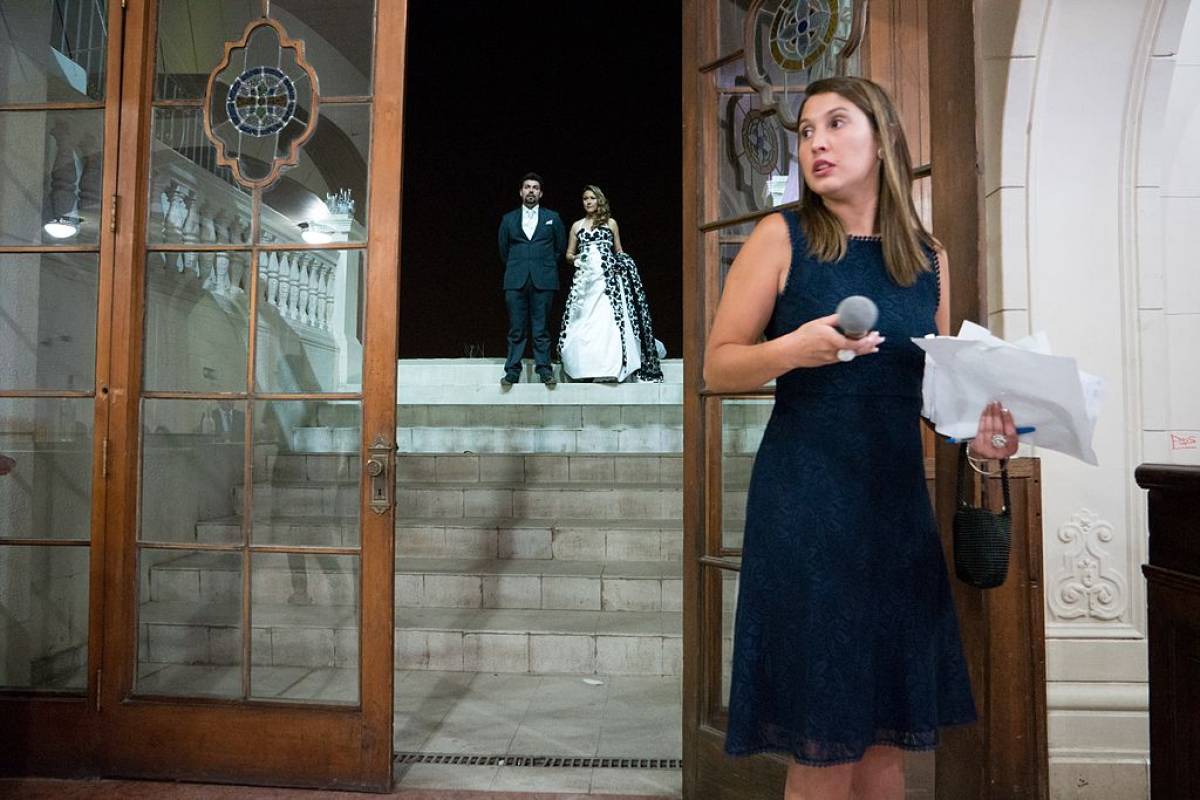How to Budget When Planning a Wedding

Photo: Francisco Osorio / Wikimedia.
Planning a wedding is an exciting journey filled with joy, love, and also a touch of stress. Amidst all the decisions and dreams for the big day, one aspect of wedding planning that deserves careful attention is your wedding budget.
It's so important to set a realistic budget for a wedding based on what you can part ways with, and manage your expenses wisely to avoid ruining your day-to-day finances just to achieve the day of your dreams.
While having expensive canopies and a full orchestra playing whilst you walk down the aisle sounds idealistic, it is not cheap. Budgeting for a wedding might just be the difference between you enjoying your exquisite honeymoon, or paying back credit card debts years after the wedding date.
Use the following suggestions for creating your perfect wedding day, without being out of pocket:

1. Begin with an Honest Conversation
Before rushing into the wedding planning process, sit down with your partner and have an honest conversation about your finances. Assess your current financial situation, including savings, income, and any contributions from family members.
If friends and family are happy to contribute, make sure you have their word or even the money transferred so you know what is readily available.
Determine the amount you're willing and able to spend on your wedding and also what others are happy to give. Establishing a clear and realistic budget from the start will serve as a roadmap for all your future wedding spend decisions.
2. Prioritize Your Expenses
Identify the key elements that are most important to you and your partner. Discuss your priorities and allocate a larger portion of your budget to these aspects. It could be the venue, food, photography, or entertainment.
By prioritizing your expenses, you can ensure that your wedding reflects your values and desires while maintaining financial balance.
3. Research and Gather Prices
Do thorough research and gather quotes from multiple vendors for each aspect of your wedding. There are lots of elements that contribute towards a full wedding, including paying for the venue, florists, caterers, garments, beauty treatments, and many more things.
Having people recommended is helpful, but make sure you are getting the best prices possible. There is often room for negotiation if you are choosing between two vendors, so let them give you their best price.
4. Create a Detailed Budget Spreadsheet
Utilize a spreadsheet or budgeting tool to create a comprehensive overview of your wedding expenses. Start with major categories like venue, catering, attire, decorations, photography, entertainment, and transportation.
Within each category, break down the expenses into specific items or services. Allocate estimated costs based on the quotes you've gathered, and leave some room for unexpected expenses.
Regularly update the spreadsheet as you make decisions and secure bookings to ensure you're staying within your budgetary limits.
5. Trim Your Guest List
One of the most effective ways to reduce wedding costs is to trim your wedding guest list. Consider inviting only close family and friends, excluding acquaintances or distant relatives.
A smaller guest count not only reduces catering expenses, but also impacts other areas like invitations, bridesmaid dresses, and favors.
Remember, it's the quality of the company, not the quantity that matters most.
6. Be Open to Creative Venue Options
Wedding venues can consume a significant portion of your budget. Explore unconventional options, such as parks, gardens, community centers, or even private residences. These venues often offer a more intimate and unique setting at a fraction of the cost.
Consider hosting your ceremony and reception at the same location to avoid additional expenses. Outdoor venues can also provide natural beauty and require minimal decoration.
7. DIY and Borrow
Tap into your creativity and consider do-it-yourself (DIY) projects for certain aspects of your wedding. For example, you can create your own centerpieces, wedding favors, or ceremony decorations using affordable and sustainable materials.
Additionally, reach out to friends and family who may be willing to lend or share items like vases, table linens, or even wedding attire. Borrowing or repurposing items can significantly reduce expenses while adding a personal touch to your special day.
8. Opt for Off-Peak and Weekday Weddings

Wedding venues and vendors often have different pricing structures for peak and off-peak seasons.
Consider scheduling your wedding during the off-peak season or on a weekday. Many vendors offer discounts during these times, allowing you to save a considerable amount without compromising on quality.
Be sure to communicate any date constraints to ensure your preferred vendors are available.
9. Track Your Expenses
Keep a close eye on your wedding expenses throughout the wedding planning process. Regularly review your budget spreadsheet, update actual costs, and compare them with your estimates.
Assuming you have created the spreadsheet as recommended, keep on updating the sheet to give you a visual idea of what you have left in each budget.
Tracking your wedding expenses can be beneficial especially if you have saved in some areas, as p[art of the budgets can be moved elsewhere to even out the overall budget.
Conclusion
Budgeting for your wedding is an essential aspect of the wedding planning process. By setting a realistic budget, prioritizing your expenses, researching vendors, and making conscious choices, you can create a memorable wedding without straining your finances.
Remember, it's not about the extravagance but the love and celebration that matter most. With careful planning and smart financial decisions, you'll embark on a beautiful journey towards your dream wedding while maintaining financial peace of mind.




















